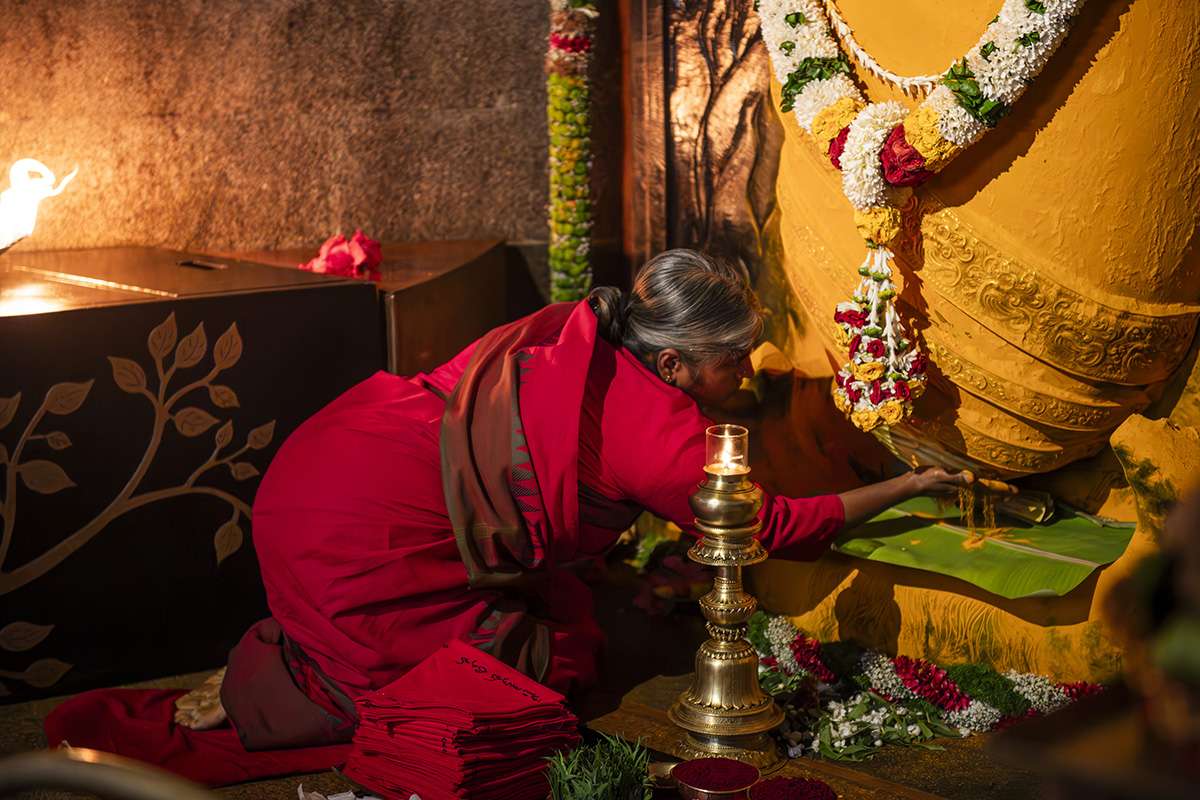

Amidst the vibrant hues of India’s cultural landscape, the balance between rituals and the core of spiritual process is a nuanced subject. Sadhguru sheds light on this interplay, illuminating the significance of both practices in contemporary society. Join us as we explore the symbiotic roles they play in enriching lives and fostering inner transformation.

Questioner: In Indian society, there seems to have been a rise in rituals, while spiritual process has taken a backseat. What is your take on that?
Sadhguru: There is no measurable statistic indicating a decline in spiritual process and a rise of blind ritualism. First let me explain what a ritual is.
Brushing your teeth in the morning is a kind of ritual. As a child, you may not have felt like brushing your teeth, but your mother probably insisted on it. Over time, you picked it up and made it a part of your routine. It is a good daily ritual. Likewise, we have consciously developed and cultivated rituals where we know that if we do not do them, our teeth may fall off, or we may fall apart in some other form if we do not take care of certain things.
You have the choice to either consciously brush your teeth, knowing that it is useful for you, or do it just because your mother told you. These are two different approaches to doing the same thing, but the result is the same. Rituals are like that.

On the other hand, meditative processes are internal and need to be taught individually, making them impractical for larger groups over extended periods of time. In a ritual, any number of people can participate without knowing anything about it, and all of them will benefit if it is conducted with integrity. The problem with rituals is that over a period of time, those who conducted them often saw them as a means to exert power over others, and they misused, abused, and commercialized them.
It is not that rituals have not worked for people. The problem is lack of integrity. For about the first 24 years, we did not offer any rituals. We banished everything because we wanted to create people of a certain level of integrity. Once we saw that there were people with a sense of integrity, who would not misuse anything under any circumstances, we introduced rituals as scientific processes that have an immense impact on people.

For a ritual, participants do not need to understand anything about it; they just have to participate. But to make someone meditative, they need to have some understanding of it and must be willing enough to go through that process. Rituals are efficient processes because they can be delivered en mass, though maybe not with the same transformational impact as meditation.
Given our current population of around 1.4 billion, should we give the best food to 400 million people and leave the remaining 1 billion people to starve? Or is it better to ensure that at least basic food reaches all of the 1.4 billion people? Which option do you think is better?

A ritual reaches and touches everyone, at least in a limited way. If you have to make all of them meditative, all of them sit with eyeballs rolled up. This is what I thought I will do when I was 25. Since then, I have become wise. Spiritual process has not taken a backseat. Probably never before in the history of humanity have as many people been practicing Yoga on this planet as they do today.
All across the world, many people at least make an attempt to close their eyes and do some form of Yoga. As a part of this, we are going to launch “Miracle of Mind” later this year. We want at least 3 billion people to close their eyes for 15 minutes a day and do a simple Yogic process. If 3 billion people close their eyes every day for 15 minutes, you will see a different humanity.